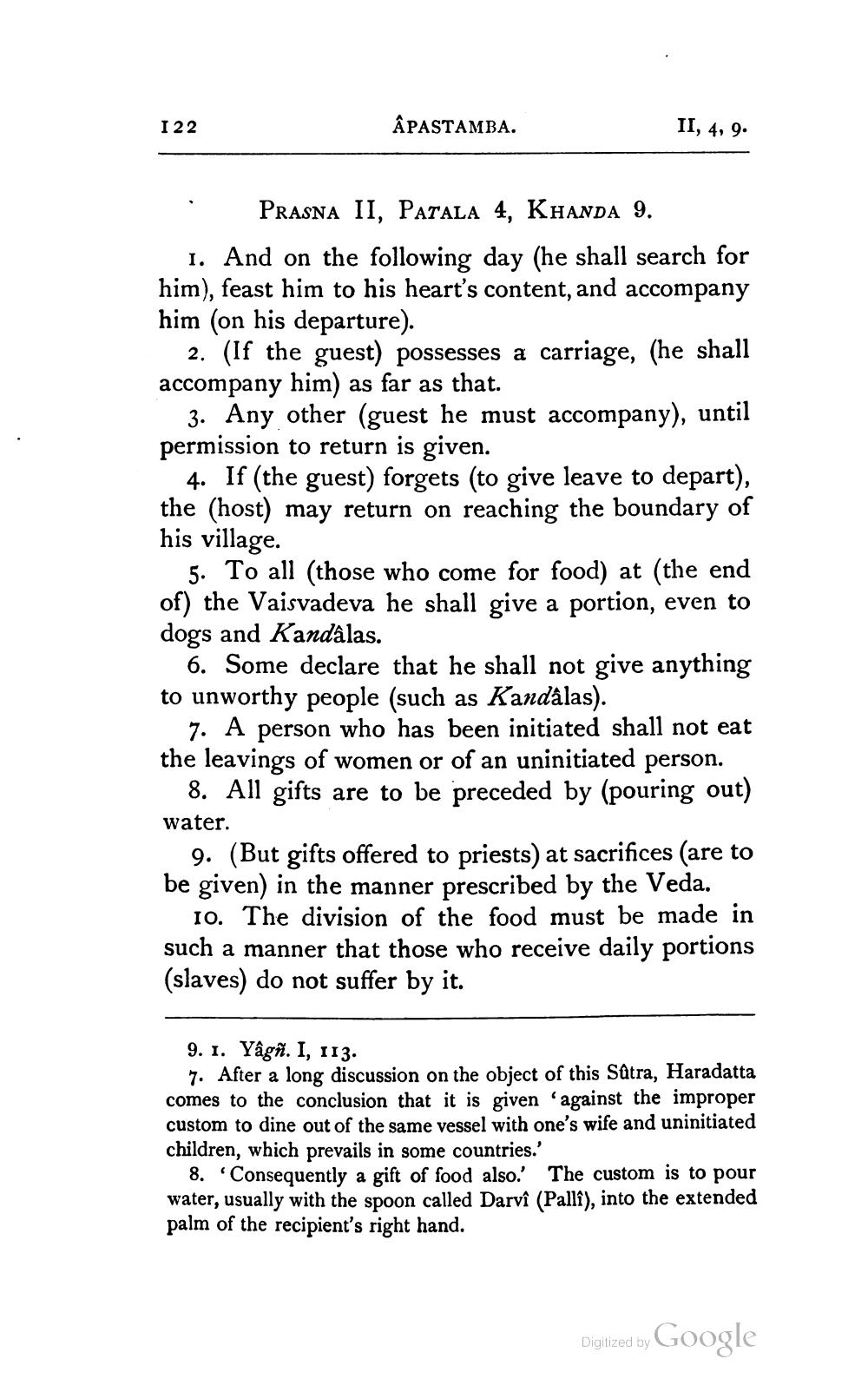________________
I 22
ÂPASTAMBA.
II, 4, 9.
. Prasna II, Patala 4, Khanda 9.
1. And on the following day (he shall search for him), feast him to his heart's content, and accompany him (on his departure).
2. (If the guest) possesses a carriage, (he shall accompany him) as far as that.
3. Any other (guest he must accompany), until permission to return is given.
4. If (the guest) forgets (to give leave to depart), the (host) may return on reaching the boundary of his village.
5. To all (those who come for food) at (the end of) the Vaisvadeva he shall give a portion, even to dogs and Kandklas.
6. Some declare that he shall not give anything to unworthy people (such as Kandalas).
7. A person who has been initiated shall not eat the leavings of women or of an uninitiated person.
8. All gifts are to be preceded by (pouring out) water.
9. (But gifts offered to priests) at sacrifices (are to be given) in the manner prescribed by the Veda.
10. The division of the food must be made in such a manner that those who receive daily portions (slaves) do not suffer by it.
9. 1. Yâgñ. I, 113.
7. After a long discussion on the object of this Satra, Haradatta comes to the conclusion that it is given against the improper custom to dine out of the same vessel with one's wife and uninitiated children, which prevails in some countries.
8. Consequently a gift of food also. The custom is to pour water, usually with the spoon called Darvî (Palli), into the extended palm of the recipient's right hand.
Digitized by Google




